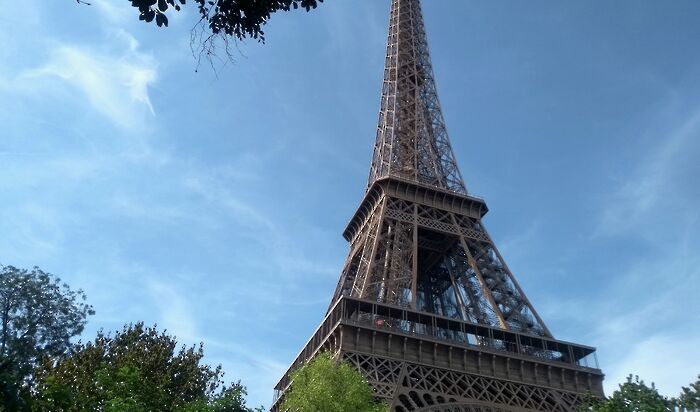‘Hot girl summer’ is part of a more pervasive appropriation of Black American culture
The phrase spread like wildfire this Summer, but Megan thee Stallion received little credit for it. Kwaku Gyasi notes that this is a familiar routine for Black creatives

A new movement has taken the world by storm. Spearheaded by Megan thee Stallion, 24-year-old bombshell rapper from Houston, Texas, a “hot girl summer’ entails “being unapologetically YOU, having fun [and] being confident,” according to thee Hot Girl herself. The phrase “hot girl summer” has been inescapable for the past few months: the ‘Hotties’ (Megan’s affectionate nickname for her fanbase) extol the virtues of a carefree and fun-filled lifestyle; gender wars have been reignited as men attempt to appropriate a “hot boy summer” for themselves; even brands have absorbed the phrase into their marketing in a last-ditch effort to relate to millennials.
Having seen its popularity, the 24-year-old declared her intent to trademark the phrase, a smart move in a world where the due credit for creativity and innovation is seldom given to its source.
The allure of hot girl summer is inextricable from Megan thee Stallion’s image: a vibrant black woman in hip-hop, glamorous yet approachable, and confident in her own bars and sexuality in a way that invites others to feel the same about themselves. She has consistently rejected the entertainment industry’s contrived rivalries among female hip-hop artists, instead eschewing ‘catfights’ in favour of camaraderie by publicly supporting her contemporaries. This strong and refreshing branding is something that some companies have tried to buy in on — figuratively, of course, since no effort has been made to include Megan in the profits made from ‘hot girl summer.’
The problem is not the spread or exchange of culture. The issue arises when the context of cultural artefacts are ignored
This is part of a worrying pattern which has emerged on the internet, where young black creatives routinely see their linguistic and cultural innovations divorced from their original context and taken credit for, with no compensation for their intellectual property. Whenever this happens, I am reminded of the summer of 2014, when then-16-year-old Peaches Monroee coined the phrase “on fleek” in a Vine. The phrase went on to be ubiquitous in the mid-2010s, appearing on T-shirts, in song lyrics and on Kim Kardashian’s Twitter page. During the peak of the popularity of “on fleek” Monroee received little recognition, until years later when black media outlets made it a point to cite her contribution to black cultural history. Megan’s fans, a significant contingent of which is made of young black women and LGBTQ people who have continually witnessed the bastardisation of their innovations, clamoured to make sure that she would stake a legal claim to her intellectual property so that the same wouldn’t happen with “hot girl summer.”
Black American culture has long had an outsized influence on the rest of the world. English has always been the online lingua franca, but at least for the sectors of the internet dominated by people born after 1990, the language is peppered with vocabulary and grammar in large part borrowed from African American Vernacular English. Since its birth half a century ago, the influence of rap music is felt on every continent, and Forbes reported in 2017 that hip-hop is now the most listened-to genre in the United States, the world’s biggest music market.
But to describe this as a cultural exchange would suggest a reciprocity that doesn’t exist. The unfortunate truth is that Black American language and culture in general, and hip-hop culture especially, are still mocked, and labelled as unrefined. This negative stereotyping adds insult to injury when non-black artists, consumers and corporations mine black language, music and expression for inspiration to adopt a more adult, edgy, or ‘gangsta’ persona.
The exploitation of ‘hot girl summer’ illuminates the problem with this kind of appropriation, a term which has all but been reduced to a buzzword after frequent misuse. The problem is not the spread or exchange of culture, which is normal and inevitable in a world as interconnected as ours. The issue arises when the context and significance of cultural artefacts are downplayed or ignored; when (typically more privileged) groups neglect to give the due credit for innovation; when the fascination of black culture doesn’t translate to an interest in its sources in a way that recognises their humour, originality and ingenuity.
Discourse aside, all it is to be a hot girl is to put yourself first and look good doing it. Even so, it is vital that we respect the movement as a part of Megan’s legacy — not something that Miley Cyrus invented or that Forever 21 referenced once. Moving forward, we should strive to revel in our pop culture while paying due respect to their creators indiscriminately.
 Comment / Cambridge’s tourism risks commodifying students18 April 2025
Comment / Cambridge’s tourism risks commodifying students18 April 2025 News / Cambridge student numbers fall amid nationwide decline14 April 2025
News / Cambridge student numbers fall amid nationwide decline14 April 2025 News / Greenwich House occupiers miss deadline to respond to University legal action15 April 2025
News / Greenwich House occupiers miss deadline to respond to University legal action15 April 2025 Comment / The Cambridge workload prioritises quantity over quality 16 April 2025
Comment / The Cambridge workload prioritises quantity over quality 16 April 2025 Sport / Cambridge celebrate clean sweep at Boat Race 202514 April 2025
Sport / Cambridge celebrate clean sweep at Boat Race 202514 April 2025





